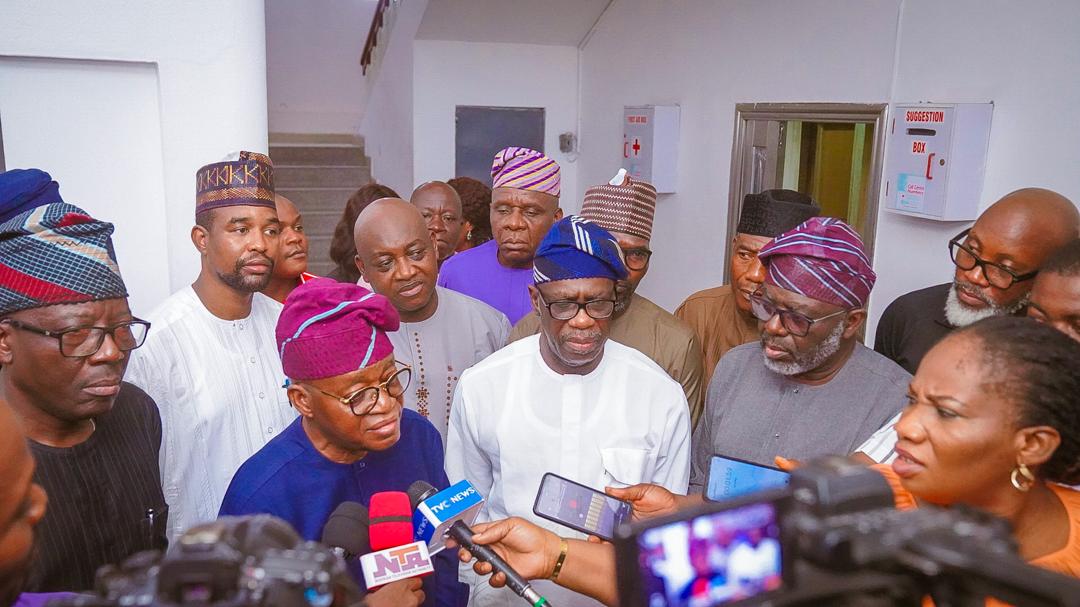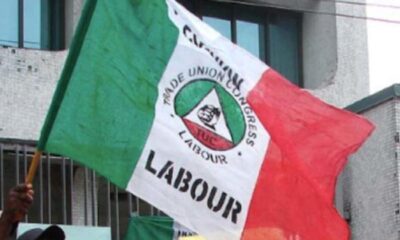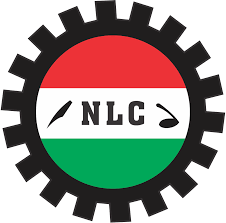Business
Infrastructure deficit: Nigeria requires $2.3trn investment over next 23 years — FG
Nigeria requires $2.3trillion investment over the next 23 years to bridge its infrastructure deficit, the Federal Government has stated.
The Federal Government made this known during the visit of the United Kingdom Nigeria Infrastructure Advisory Facility (UK-NIAF) to the Minister of Budget and National Planning, Sen. Atiku Bagudu yesterday in Abuja.
The Ministry appealed to the UK-NIAF to assist in providing support to the Ministry to host national and sub-national awareness and sensitisation workshops on the Reviewed National Integrated Infrastructure Master Plan (2020-2043) as the FG-approved vehicle to deliver infrastructure projects in Nigeria.
The support, it said, was very important and urgent in view of the new political dispensation and to avoid duplication of efforts.
The Director of the Infrastructure Department of the Ministry, Samuel Nwozuzu, who addressed the visitors said there was also a need for awareness creation by the Minister at the Federal Executive Council and at the National Economic Council on the existence of NIIMP, which is the vehicle for infrastructure project delivery in Nigeria.
He noted that the limited capacity of the MDAs in the identification and packaging of bankable projects still remains an obstacle to infrastructure delivery in Nigeria as it has limited private sector investment in infrastructure development.
He therefore urged NIAF to assist in strengthening institution capacity of the Ministry and other relevant MDAs to achieve that purpose.
The Director also called on the NIAF to provide technical and financial support to develop 2023-2027 NIIMP Implementation Plan which, he said is still outstanding.
He further requested the partners to provide capacity and other form of assistance to States and FCT to develop the States Integrated Infrastructure Master Plan in line with the States priorities and align it with the National objectives in other to ensure seamless effort in Infrastructure planning.
The UK-NIAF visit was a follow up to the visit of the UK Foreign Secretary to Mr. President on how to work with the Federal government to support the vision for infrastructure delivery which is a critical driver of economic growth and overall development.
In the past, the NIAF has assisted the Federal and State Governments in the areas of capacity building for MDAs in the areas of Public Private Partnership in projects development as well as assistance in mobilising about USD600 million in grants and concessionary funding for a number of critical infrastructure projects among others.
It has also worked with a range of Federal and selected Sub-National MDAs to develop a decision support tool which the Budget Office of the Federation has adopted to green the project pipelines of infrastructure-focused MDAs in the 2023 Appropriation Act and develop a USD 7.2 billion pipeline of climate-smart infrastructure projects, among others.
The UK-NIAF was established by the UK Department for International Development (DFID) in response to a request made by the Federal Government for support in the provision of technical assistance to enable the country to improve its infrastructure, the quality and reliability of related services.
The goal of the NAIF is to increase access to improved, reliable and affordable infrastructure services in Nigeria via enhancing governments capacity to plan, finance and operate infrastructure delivery at the federal and state levels.
NAIF has a broader aim to improve availability of finance for infrastructure development in particular through public private partnership (PPP) in infrastructure.
Recall that Nigeria already has a Master Plan on Infrastructure, the National Integrated Infrastructure Master Plan (NIIMP), which was developed in 2014 through a participatory process involving all relevant stakeholders.
The NIIMP provides an integrated view of infrastructure development in Nigeria, with clear linkages across key sectors and establishes sector targets, priority programmes and critical enablers for effective implementation.
As at 2020 when the NIIMP was reviewed, it was estimated that Nigeria will require an investment of USD 2.3 trillion over the next 23 years from 2021 to raise the stock of infrastructure from 30 percent of Gross Domestic Product (GDP) to at least 70 per cent by 2043.
To meet this target, the sum of USD 150 billion is required annually from 2022 to 2027.
The Public sector is to provide 48 per cent of the funds required, while the private sector provides 52 per cent.
This is quite huge in view of the lean public sectors resources it is believed that the implementation of the Reviewed NIIMP and the National Development Plan will therefore be heavily dependent on a strong partnership between the private and public sectors.
This, experts say, will require great emphasis by Federal government and States on Public Private Partnership as a vehicle to bridge the infrastructure funding gap.
Business
Oyetola in Lagos, defies downpour, embarks on inspection tour


By Seun Ibiyemi
The rain in Lagos began very early on Thursday morning. But the torrential rainfall did not stop Minister of Marine and Blue Economy, Adegboyega Oyetola, CON, from embarking on the tour of two key institutions that were recently brought under his ministry — the Nigerian Institute for Oceanography and Marine Research (NIOMR) and the Liaison office of the Department of Fishery and Aquaculture, which houses College of Fishery, Lagos.
His first port of call was NIOMR, where the Chief Executive of the institute, Prof. Abiodun Sule, took the Minister through some of its strategic breakthroughs, including unveiling some of the different species of fish in our waters.
The Minister charged the Institute to take up the challenge of mapping out the country’s various marine resources, saying the country needs to know what it has and in what quantity.
He charged the staff to redouble their efforts and ensure they find a solution to the rising cost of fish feeds in Nigeria. The Minister reiterated his desire to increase local production of fish, while reducing dependence on importation.
From the Institute, Oyetola and his entourage, which included the Permanent Secretary, Oloruntola Olufemi; Director, Maritime Safety and Security, Babatunde Bombata, and the Executive Director, Engineering and Technical Services, Engr. Ibrahim Umar, who represented the the MD of NPA, headed for the Department of Fishery and Aquaculture, where the delegation inspected the Laboratory and charged the staff not to lower the standard of monitoring and inspection so as to ensure the country’s exporters are not blacklisted by the International community and also ensuring that those being imported meet required standard.
He assured the staff of both institutions of his commitment to their welfare, while urging them to also increase their capacity and productivity, as he wants to see the fishing contribute to job creation and increase in revenue of the FG.
The elated members of staff promised the Minister not to let him down and pledged their commitment to the vision and mission of the Minister with respect to the maritime sector.
Business
CPPE urges CBN to halt interest rate tightening, as businesses are yet to recover from previous hikes


The Centre for the Promotion of Public Enterprise (CPPE) has called on the Central Bank of Nigeria (CBN) to slow down on monetary policy tightening ahead of its Monetary Policy Committee (MPC) meeting this month, stating that businesses are yet to recover from the hawkish monetary policy stance in the last two months.
The Centre stated this in its reaction to the latest inflation figures published by the NBS where headline inflation rose to 33.69 percent in the month of April from 33.20 percent in March.
According to the statement signed by the Director-General of the CPPE, Dr Muda Yusuf, monetary policy tools should be paused for the fiscal side of the economy to work towards addressing the supply issues affecting the inflation dynamics in the country.
He stated, “Meanwhile we urge the monetary policy Committee to soften its monetary tightening stance for the time being. Businesses are yet to recover from the shocks of the recent bullish rate hikes. The monetary instruments should be put on pause while fiscal policy tools address supply-side factors in the inflation dynamics.”
Furthermore, the Centre appreciated the slowdown in inflation for the month, especially headline and food inflation, but noted that the main drivers of price hikes (food, transport, insecurity in farming communities and other structural problems) are yet to cool down.
He explained that the drivers of inflation are supply-based and being addressed by the fiscal authorities. Also, Dr. Yusuf doubled down on his call to the Nigerian Customs Service (NCS) to set a quarterly exchange rate between N800 and N1000 for import duties assessment, noting that the continuous fluctuation has a pass-through effect on inflation.
In his words, “Meanwhile the exchange rate benchmark for the computation of import duty continues to be a major concern to businesses as it has become a major inflation driver. We again urge the CBN to peg the rate at between N800 -N1000/dollar to be reviewed quarterly. This is necessary to reduce the pass-through effect of heightening trade costs on inflation.”
Meanwhile, the CPPE also lauded the commencement of refining by the Dangote refinery, stating that it would help slow down inflation in the short term.
Recall that Nigeria’s inflation rate rose to 33.69 percent in April on the back of an increase in food and transport prices. The rate is one of the highest in about 28 years.
The CBN, in an effort to rein in inflation, has increased
Business
April 2024: FG, States, LGs share N1,208.081trn


The Federation Account Allocation Committee (FAAC), at its May 2024 meeting chaired by the Minister of Finance and Coordinating Minister of the Economy, Wale Edun, shared a total sum of N1,208.081 Trillion to the three tiers of government as Federation Allocation for the month of April, 2024 from a gross total of N2,192.007 Trillion.
From the stated amount inclusive of Gross Statutory Revenue, Value Added Tax (VAT), Electronic Money Transfer Levy (EMTL), and Exchange Difference (ED), the Federal Government received N390.412 Billion, the States received N403.403 Billion, the Local Government Councils got N293.816 Billion, while the Oil Producing States received N120.450 Billion as Derivation, (13 percent of Mineral Revenue).
The sum of N80.517 Billion was given for the cost of collection, while N903.479 Billion was allocated for Transfers Intervention and Refunds.
The Communique issued by the Federation Account Allocation Committee (FAAC) at the end of the meeting indicated that the Gross Revenue available from the Value Added Tax (VAT) for the month of April 2024, was N500.920 Billion as against N549.698 Billion distributed in the preceding month, resulting in a decrease of N48.778 Billion.
From that amount, the sum of N20.037 Billion was allocated for the cost of collection and the sum of N14.426 Billion given for Transfers, Intervention and Refunds. The remaining sum of N466.457 Billion was distributed to the three tiers of government, of which the Federal Government got N69.969 Billion, the States received N233.229 Billion, Local Government Councils got N163.260 Billion.
Accordingly, the Gross Statutory Revenue of N1,233.498 Trillion received for the month was higher than the sum of N1,017.216 Trillion received in the previous month of March 2024 by N216.282 Billion. From the stated amount, the sum of N59.729 Billion was allocated for the cost of collection and a total sum of N889.053 Billion for Transfers, Intervention and Refunds.
The remaining balance of N284.716 Billion was distributed as follows to the three tiers of government: Federal Government got the sum of N112.148 Billion, States received N56.883 Billion, the sum of N43.855 Billion was allocated to LGCs and N71.830 Billion was given to Derivation Revenue (13 percent Mineral producing States).
Also, the sum of N18.775 Billion from Electronic Money Transfer Levy (EMTL) was distributed to the three (3) tiers of government as follows: the Federal Government received N2.704 Billion, States got N9.012 Billion, Local Government Councils received N6.308 Billion, while N0.751 Billion was allocated for Cost of Collection.
The Communique also disclosed the sum of N438.884 Billion from Exchange Difference, which was shared as follows: Federal Government received N205.591 Billion, States got N104.279 Billion, the sum of N80.394 Billion was allocated to Local Government Councils, while N48.620 Billion was given for Derivation (13 percent of Mineral Revenue).
Oil and Gas Royalties, Companies Income Tax (CIT), Excise Duty, Petroleum Profit Tax (PPT), Customs External Tariff levies (CET) and Electronic Money Transfer Levy (EMTL) increased significantly, while Import Duty and Value Added Tax (VAT) recorded considerably decreases.
According to the Communique, the total revenue distributable for the current month of April 2024, was drawn from Statutory Revenue of N284.716 Billion, Value Added Tax (VAT) of N466.457 Billion, N18.024 Billion from Electronic Money Transfer Levy (EMTL), and N438.884 Billion from Exchange Difference, bringing the total distributable amount for the month to N1,208.081 Trillion.
The balance in the Excess Crude Account (ECA) as at May 2024 stands at $473,754.57.
-
Finance4 months ago
Court orders Sen. Victor Umeh to repay N136m bank debt to AMCON
-



 Abuja Update3 months ago
Abuja Update3 months agoUNDP, FG partnership needed to achieve inclusion, equity- Minister
-
Abuja Update2 months ago
Banks drive stock market performance with N147bn gain
-
capital market2 years ago
Rt.briscoe, FBNH, Others halts negative performance of stock market
-
Submission Guidelines4 months ago
CALL FOR SUBMISSIONS: POETRY COLUMN-NND
-



 Health1 month ago
Health1 month agoCapacity training will reduce migration of health workers- NPHCDA
-



 Business4 weeks ago
Business4 weeks agoTingo Group unveils Tingo Electric, Tingo Cola drink at Lagos launch
-
News5 months ago
Oil thieves sponsoring malicious media campaign against Navy – Spokesman
















